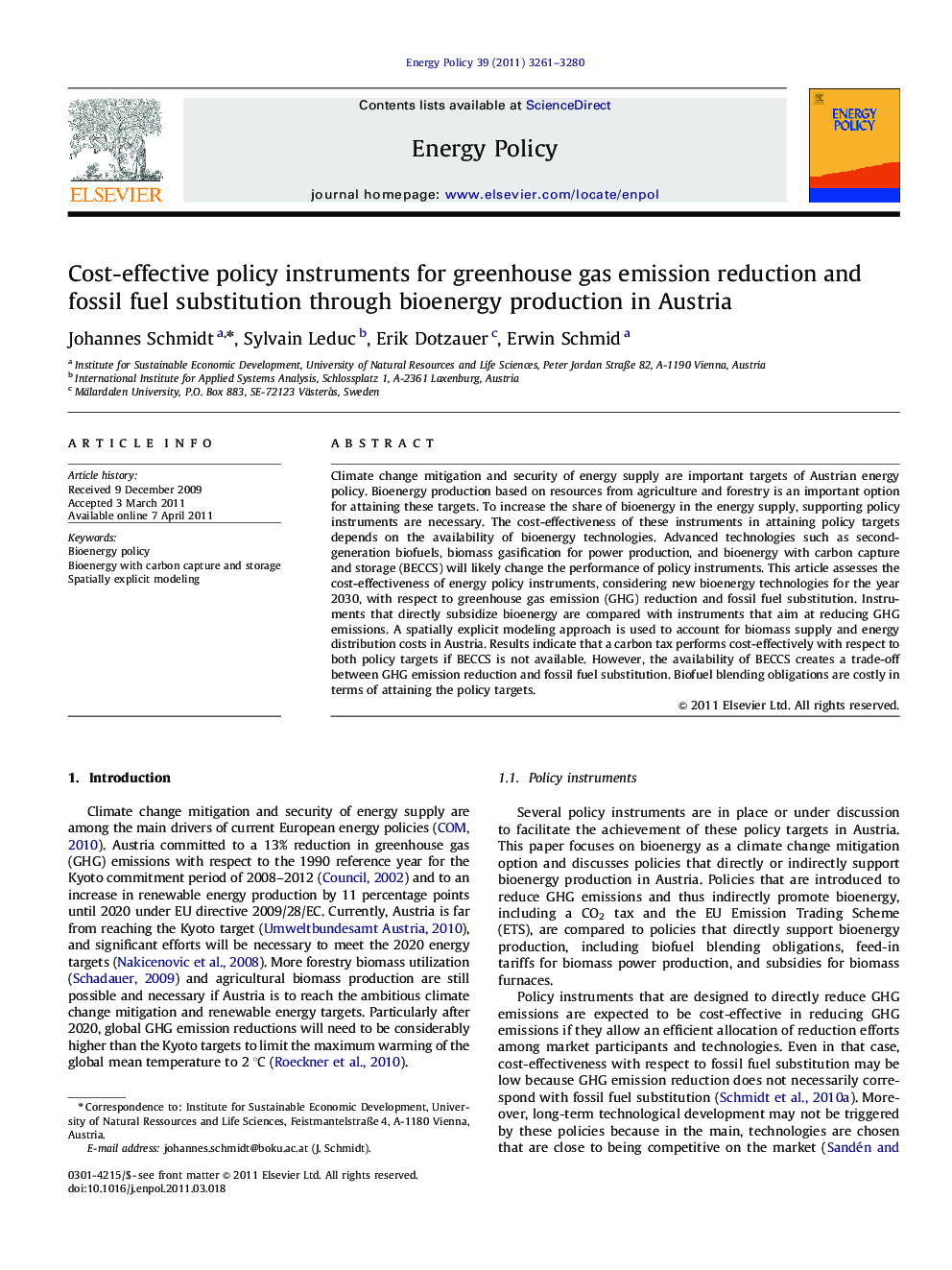| کد مقاله | کد نشریه | سال انتشار | مقاله انگلیسی | نسخه تمام متن |
|---|---|---|---|---|
| 994911 | 936151 | 2011 | 20 صفحه PDF | دانلود رایگان |

Climate change mitigation and security of energy supply are important targets of Austrian energy policy. Bioenergy production based on resources from agriculture and forestry is an important option for attaining these targets. To increase the share of bioenergy in the energy supply, supporting policy instruments are necessary. The cost-effectiveness of these instruments in attaining policy targets depends on the availability of bioenergy technologies. Advanced technologies such as second-generation biofuels, biomass gasification for power production, and bioenergy with carbon capture and storage (BECCS) will likely change the performance of policy instruments. This article assesses the cost-effectiveness of energy policy instruments, considering new bioenergy technologies for the year 2030, with respect to greenhouse gas emission (GHG) reduction and fossil fuel substitution. Instruments that directly subsidize bioenergy are compared with instruments that aim at reducing GHG emissions. A spatially explicit modeling approach is used to account for biomass supply and energy distribution costs in Austria. Results indicate that a carbon tax performs cost-effectively with respect to both policy targets if BECCS is not available. However, the availability of BECCS creates a trade-off between GHG emission reduction and fossil fuel substitution. Biofuel blending obligations are costly in terms of attaining the policy targets.
► Costs of energy policies and effects on reduction of CO2 emissions and fossil fuel consumption.
► Particular focus on new bioenergy production technologies such as second generation biofuels.
► Spatially explicit techno-economic optimization model.
► CO2 tax: high costs for reducing fossil fuel consumption if carbon capture and storage is available.
► Biofuel policy: no significant reductions in CO2 emissions or fossil fuel consumption.
Journal: Energy Policy - Volume 39, Issue 6, June 2011, Pages 3261–3280